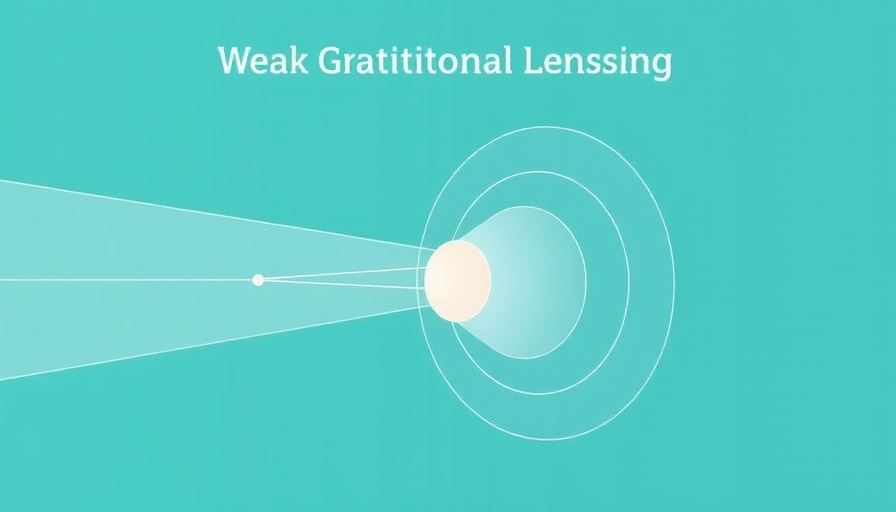
Exploring the Structure of the Universe
The universe is vast and complex, and researchers continuously work to understand its structure and behavior. A recent study published in the Journal of Cosmology and Astroparticle Physics illuminates how weak gravitational lensing can test the fundamental assumptions about the universe. Known as the Cosmological Principle, these assumptions postulate that the universe is homogenous (the same everywhere) and isotropic (the same in every direction).
The Challenge to the Cosmological Principle
Authored by James Adam, an astrophysicist from the University of the Western Cape, this study dives into the possibility of cosmic anomalies that could challenge these longstanding beliefs. The Cosmological Principle has been fundamental to the Standard Model of Cosmology, carefully crafted from years of astronomical observations and theoretical assessments. If evidence emerges suggesting the universe does not conform to these principles, it could necessitate a significant rethinking of our understanding of the cosmos.
The Role of Weak Gravitational Lensing
Weak gravitational lensing refers to the distortion of light from distant galaxies due to the gravitational influence of massive objects like galaxy clusters. By leveraging images taken from sophisticated observatories, such as the recently launched Euclid Space Telescope, the study aims to observe patterns that might reveal inconsistencies in the isotropy of the universe.
Implications of Discovering Anisotropies
The implications of discovering anisotropies would be monumental. Current cosmological models rely heavily on the assumption that the universe exhibits no preferred direction. However, recent observations hint at potential anomalies, including divergent measurements regarding the expansion rate and peculiarities in cosmic microwave background radiation. These inconsistencies raise questions about our understanding, prompting scientists to seek confirmation through robust methodologies.
Looking Ahead: What Lies Beyond Our Current Knowledge?
As we gather more data, including from new technologies that provide unprecedented accuracy, the possibility of reevaluating the cosmological models will become more tangible. If the observations made by Euclid and other instruments confirm these anomalies, they will compel scientists to rethink the tenets of cosmology and possibly redefine humanity’s place in the universe.
Conclusion: An Era of Discovery
The quest to understand the universe continues to be one of the most intriguing scientific pursuits. By utilizing new methodologies and instruments, researchers like Adam and his team are paving the way for discoveries that could reshape our understanding of reality. The evidence gathered in the coming years will be pivotal in either substantiating or challenging the assumptions that have governed our models of the cosmos.
 Add Row
Add Row  Add
Add 




Write A Comment